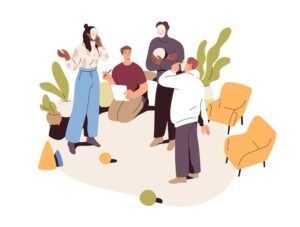This article was written by Dr. Shafiq Thahim, a psychiatrist and the founder of Dr. Aisha’s Health Vision Hospital and the IQ Institute of Neuropsychiatry in Karachi. With more than thirty years of clinical experience, he reflects here on the ethical and emotional challenges that arise when financial limitations prevent patients from accessing effective treatment, and on the quiet choices doctors often make to bridge that gap.
Every psychiatrist is trained to treat symptoms, identify root causes, and guide patients toward recovery. Textbooks prepare us for clinical judgment, but they say little about a reality we face daily in Pakistan: affordability.
A large proportion of the patients who come to Dr. Aisha’s Health Vision Hospital and IQ Institute of Neuropsychiatry belong to families with very limited resources. For them, every rupee spent on healthcare comes at the cost of something else essential, be it rent, food, or their children’s education.
When I prescribe medication, the decision carries more than just medical weight. Imported medicines often provide the most reliable outcomes, with proven efficacy and consistent results. Yet their prices make them unattainable for most households. Local versions are available at lower cost, but they frequently compromise on quality and effectiveness. The gap between what is ideal and what is affordable creates an ongoing ethical tension.
This is not an abstract dilemma. It is present in nearly every consultation. I have seen families exchange worried glances as I explain the treatment plan, already calculating what they may need to give up to afford the medicine. Parents of young patients have asked whether one month of medicine is enough if they cannot manage the second. Elderly patients sometimes choose to forgo treatment altogether rather than become a financial burden on their children. These moments weigh heavily on both doctor and patient. Do we prescribe what is ideal and watch the patient struggle with the cost, or do we compromise on efficacy to make treatment possible? Most days, the choice feels unfair.
Frequently, we end up paying for medication ourselves, whether for outpatients or for those admitted under our care. It is not a sustainable practice, yet when faced with the choice of letting a patient go untreated or bridging the gap personally, many clinicians choose the latter. These quiet interventions are never recorded, but they reflect the human side of medicine that goes beyond prescriptions and lab results.
However, the broader question still remains: how do we build systems that allow every patient, regardless of financial background, to access effective care? Access to effective treatment should not depend on financial status. This requires more than goodwill. It calls for policy reform, stronger local pharmaceutical standards, and partnerships that prioritize patient welfare over profit margins. Until such measures are in place, the burden will continue to fall on individual clinicians who do what they can in small, personal ways.
I share this reflection not as a complaint, but as an observation from decades in practice. Medicine is built on science, but it cannot be separated from compassion. Each day, we are reminded that healing involves difficult choices, choices that test not only our knowledge but also our conscience.





